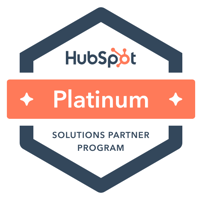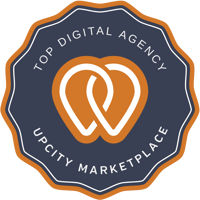If it isn't working, you'll probably notice warning signs such as:
- Complaints from your sales team that they don't have the tools needed to convert leads or close deals
- Bottlenecks in the buyer's journey (prospects don't convert to leads, leads don't convert to customers, etc.)
- A low customer retention rate/high customer churn
- Lack of communication between your marketing, sales, and customer service departments
On the other hand, if your CRM solution is working, then you'll likely see:
- Your sales team is more productive, and more likely to meet (or exceed) its quota
- More prospects turn into leads, and more leads become paying customers
- You enjoy a higher customer retention rate
- Your support team is able to resolve the vast majority of customer concerns quickly and effectively
Those are some big benefits associated with a well-designed CRM, right? In fact, research indicates that CRM systems play a huge role in boosting sales performance across the board. For example, consider this statistic: 79% of MQLs (marketing qualified leads) are never converted to sales if a CRM system is not in place. That's huge!
Without a doubt, a well-oiled CRM machine can kick your sales performance into overdrive. Let's talk about some of the nuts and bolts of setting up your CRM — and by extension your sales team — for success.
Incorporate a Referral Strategy into Your CRM
Referral marketing (also known as "word of mouth marketing") is probably the single most effective form of advertising that a company can get. Plenty of evidence backs this up. For example, look at these numbers:
- 84% of B2B decision-makers begin their purchasing process with a referral.
- People are up to 4 times more likely to buy a particular product when they are referred by friends or family members.
- A whopping 83% of satisfied customers are willing to give referrals (although less than 30% actually do).
The point is, referrals work. They can be a wonderful driver for your business and can help your sales team to "cherry-pick" high-quality leads that will quickly convert.
Okay, so how does your CRM system fit into the picture? It's relatively simple to develop a referral process within the CRM that will help your team to identify and leverage those opportunities. Here's an example process:
- Build a list of satisfied customers in your CRM. If possible, match each customer to the sales rep who had the strongest rapport with him or her.
- Develop an automated thank-you email template for the customer, but allow space for a personalized touch from the sales rep. At the end of the email, ask for a referral. For instance: "Do you know anyone who could benefit from our product? If so, please let us know!"
- [Optional] Add an incentive for them to refer a friend. We're talking about $10 for every referral that converts, a one-time discount on their subscription fee... you get the idea.
It may take a little planning. But in no time at all, you can set up a comprehensive referral process within your CRM system. And set up your sales team for an influx of warm leads!
Use Relevant CRM Metrics to Gauge Performance
Obviously, one of the biggest advantages that CRMs have to offer is the ability to leverage data into actionable insights. Put simply: CRM metrics can tell you a lot about how well your sales team is doing. And once you can measure performance, it's much easier to improve it.
Here are just a few examples of CRM metrics that you may want to closely examine:
- Close rate. This metric is often considered the "holy grail" of sales. It measures the percentage of leads that convert into paying customers.
- Lead velocity. Also known as "length of the sales cycle," this metric determines the average amount of time it takes for a lead to make a purchase.
- Upsell rate. This is a great metric to help determine how proactive your sales team is when it comes to offering new products (or product upgrades) to existing customers.
- Customer lifetime value (CLTV). This metric projects how much revenue you can expect from the average customer over the course of his/her relationship with your company. (If you're only acquiring customers with a low lifetime value, then you may be selling to the wrong people!)
Of course, you have to use the right CRM metrics to get an accurate picture of your team's performance. That's why it's so important to focus on relevant KPIs when analyzing your CRM data. For instance, your close rate may be low at 5% — but if the average price of one of your products is worth thousands of dollars, then your team may actually be exceeding expectations!
Automate Routine Tasks to Increase Employee Productivity
One of the greatest benefits that a CRM system can offer your team is "addition by subtraction." In other words, you can add to your team's effectiveness by subtracting routine, time-consuming tasks from their typical workday. Here are a few examples of what we're talking about:
- Accessible contact and background information. If one of your sales reps is ready to contact a lead, then he or she can use your CRM to access all of the information that's needed to make the call (and make it a success) within a few clicks.
- Consolidated note-taking. When your sales rep needs to type some notes in order to further develop a lead's interest, your CRM should provide a simple, intuitive platform to make that process as easy as possible. Plus, those notes will be available for the next interaction with that lead, whether the original sales rep handles it or a new one steps in.
- Email sequencing. Can you imagine how much time it would take for a sales team to follow up every inquiry, every newsletter sign-up, every sale with an email written from scratch? That could be a full-time job in itself! Fortunately, most CRM solutions come equipped with email automation capabilities that help maintain customer relationships without overwhelming your sales reps.
Take advantage of our free Hubspot CRM Configuration to start modernizing your sales process. This is a limited-time offer where we will design a sales pipeline specifically for your business. Start generating more revenue and improve your close rates by building your first high-performing sales pipeline on HubSpot at no cost. Simply schedule a discovery session with our team of HubSpot experts.



